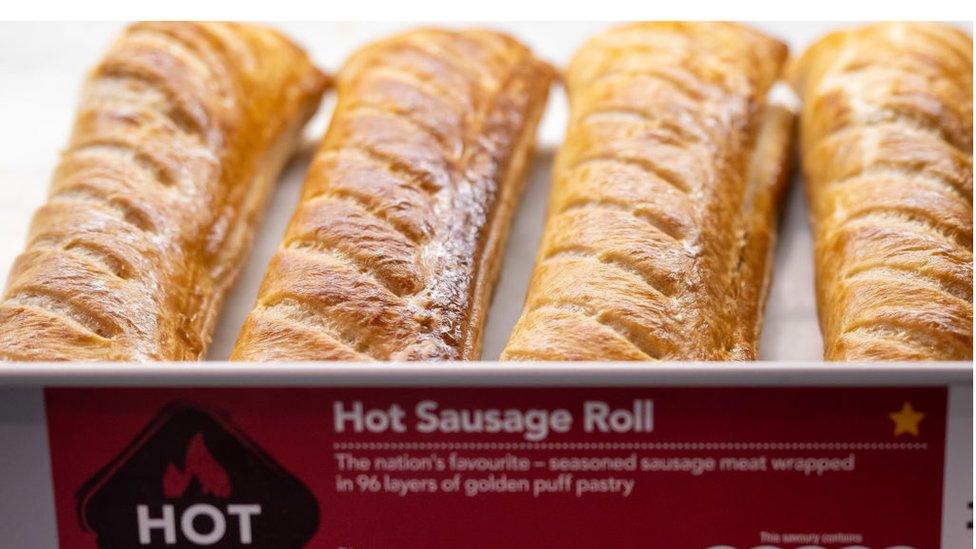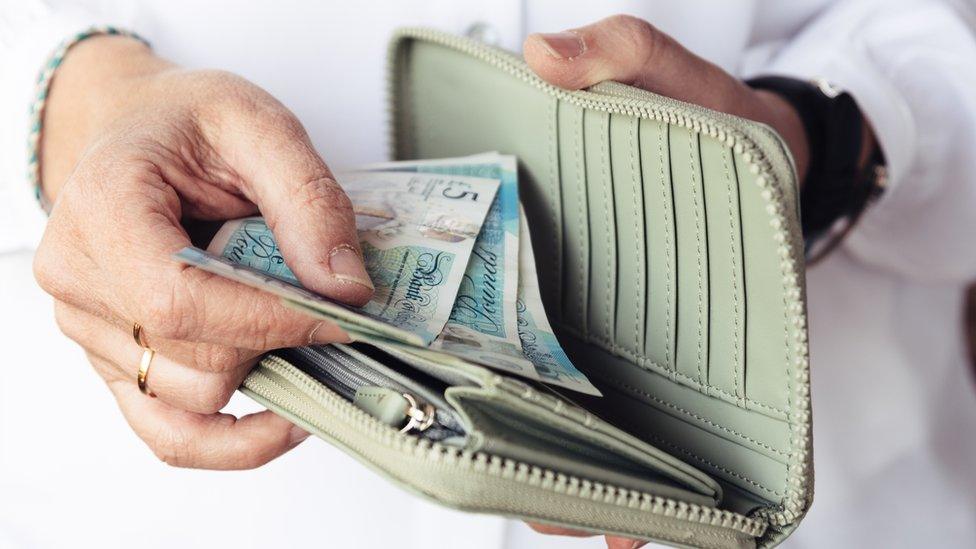Greggs warns of more price increases
- Published
- comments

Bakery chain Greggs has warned that its prices could go up for a second time this year as it faces surging costs.
Higher prices for food, energy and staff, plus tax changes mean the company's own costs will rise by between 6% and 7% it said.
The chain, known for its sausage rolls and steak bakes, put prices up at the start of the year and it expects "further changes" to be necessary.
The UK cost of living is rising at the fastest pace for 30 years.
Greggs said the cost of raw materials had gone up while energy prices are also soaring.
While it has locked in prices for some commodities ahead of time, the company said future costs remain "uncertain".
Energy prices around the world began to rise sharply as economies started to recover from the coronavirus pandemic, and have surged further as Russia's invasion of Ukraine continues.
Labour costs have also increased for businesses as job vacancies have reached record highs.
Greggs said that overall wages at the company increased by 3% last year, and it had brought forward a planned 2022 pay rise by five months, adding £4.5m to its costs.
While average pay in the UK has been going up, it has been lagging behind increases in the cost of living - adding to the squeeze on households' finances.
Greggs also noted that would face an increase in the rate of National Insurance on wages and salaries in April.
The chain said rising costs "necessitated some price increases, which were made at the start of this year, and further changes are expected to be necessary".
"As ever, we will work to mitigate the impact of this on customers," it said, adding that it did not expect a "material" rise in profits for the year ahead.
The comments triggered a near 9% fall in Greggs' share price to a one-year low of £20.96.
Chief executive Roger Whiteside said that while the company had no plans for immediate price rises, "obviously that's going to have to remain under review given the way the markets are moving around the world on commodity food prices in particular".
The business swung back to a profit last year after taking a hit in 2020 when many of its shops were closed for much of the year due to the pandemic.
Profit before tax rose to £145.6m for the year to 1 January, compared to a £13.7m loss in the previous 12 months.
Full year sales rose by 5.3% compared with 2019, the year before the pandemic, to £1.2bn. Like-for-like sales, which strip out revenue from new shops open during the year, fell by 3.3% from pre-Covid levels.
Related topics
- Published16 February 2022

